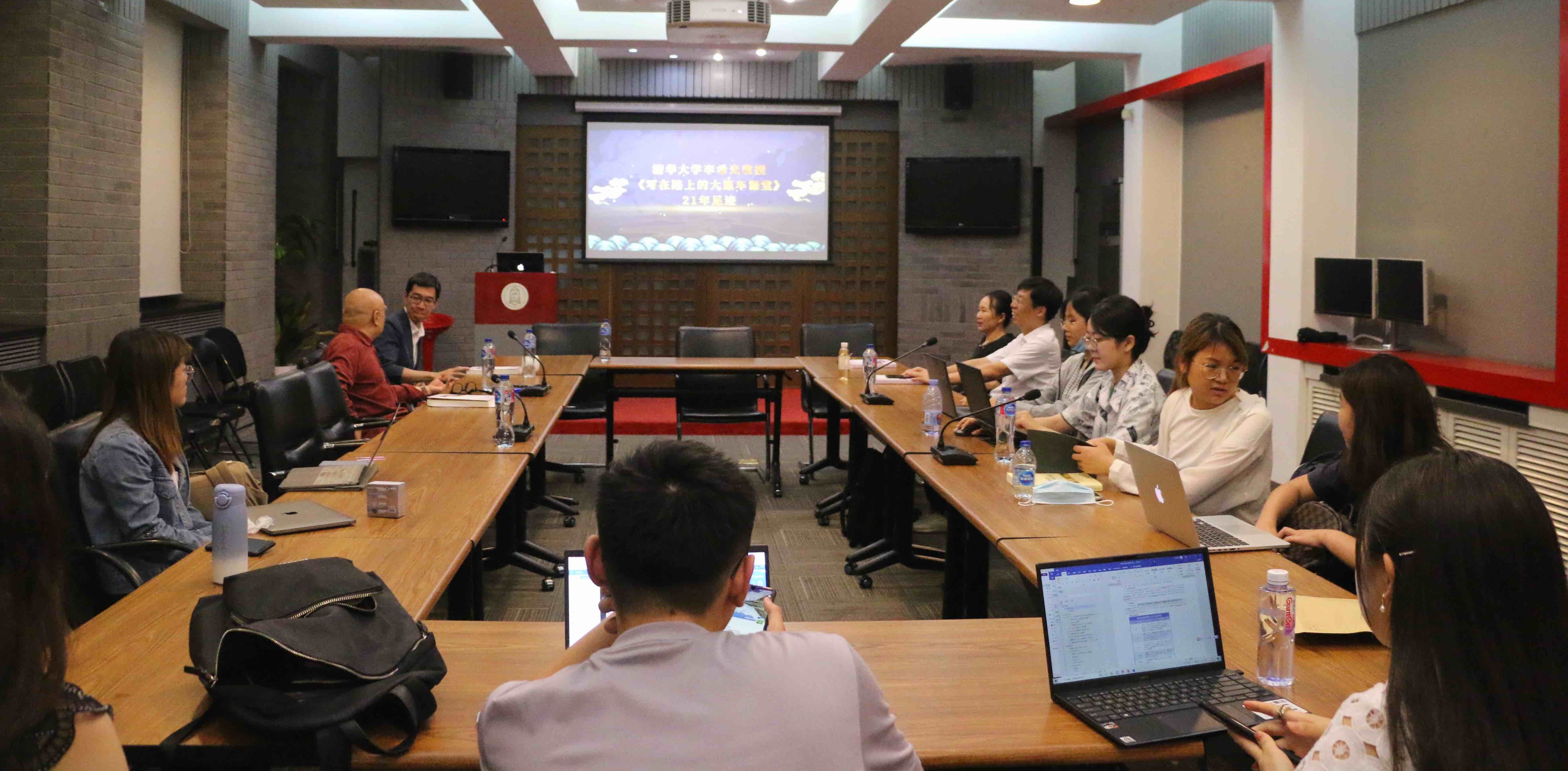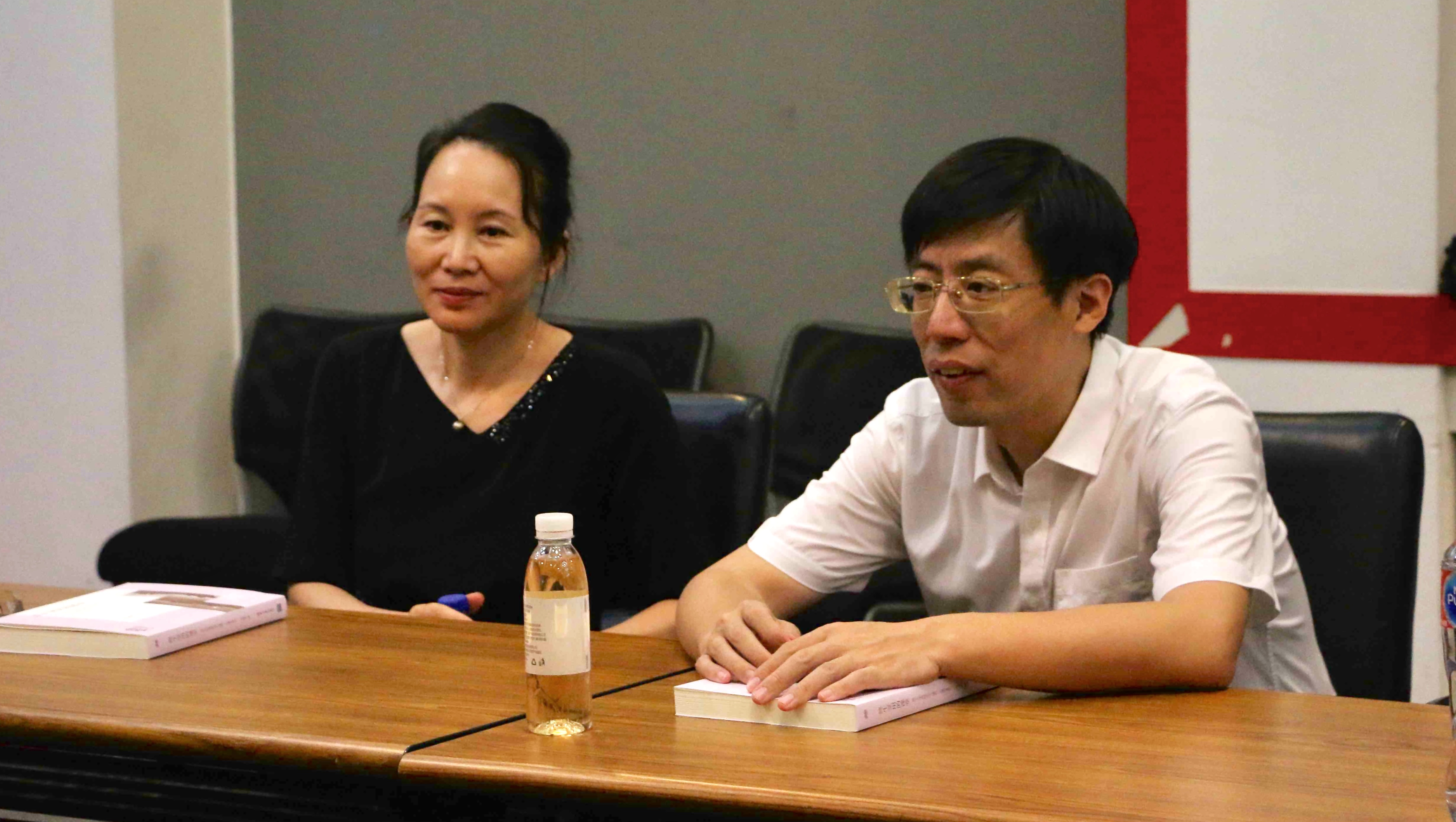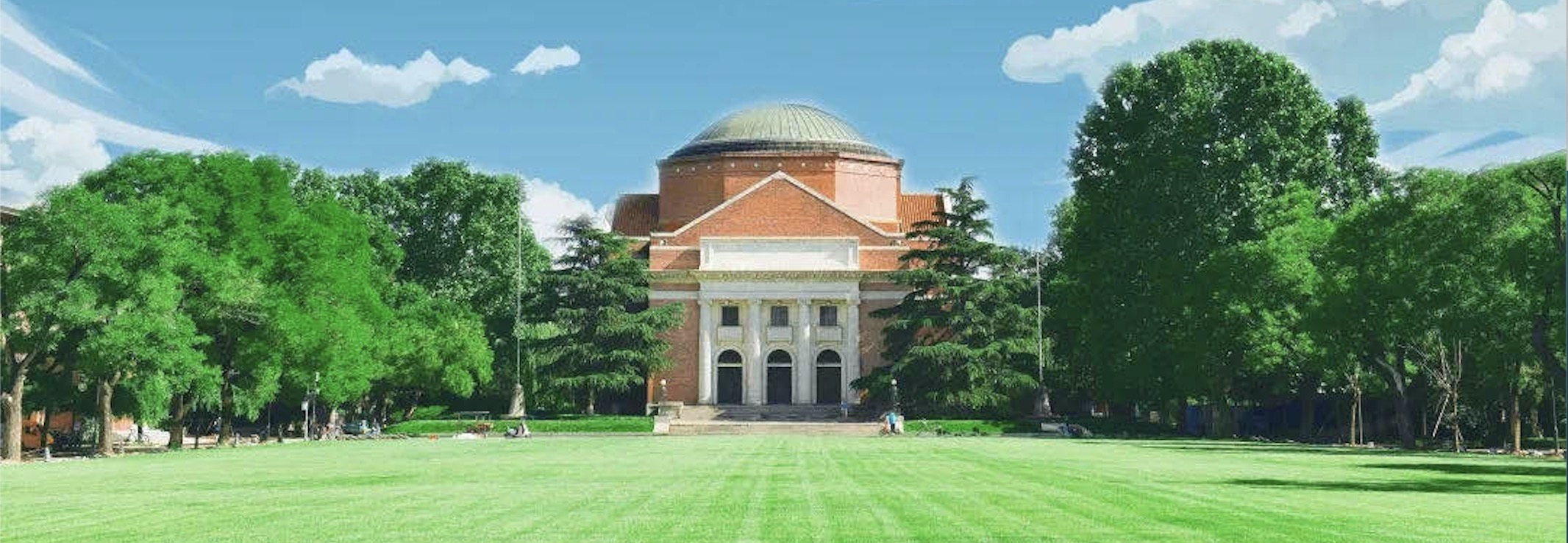The stormy sound of the Arctic Ocean echoed in the classroom, and the wheat fields of the Crimean Peninsula seemed to brush the faces of the students. On June 24th, Chen Changfeng, Executive Deputy Dean of the School of Journalism and Communication, Zhou Qingan, Deputy Dean of the School of Journalism and Communication, Gu Tao, Deputy Dean of the Rixin College, undergraduate students from Rixin College and graduate students from the School of Journalism gathered in the Global Resource Hall of the School of Journalism and Communication to watch a documentary that marked Professor Li Xiguang's 21-year ascetic practice of the "Caravan Class". Graduates who had participated in the Caravan Class came to the venue to share their thoughts with the students and faculty, and students who will go to the Tibetan Caravan Class in 2021 also gathered here.

The "Caravan Class" is a practical undergraduate summer course that encourages students to go to the Asian borderlands to practice journalism, encouraging the new generation of college students to revive the rigorous learning style of ancient Chinese scholars, to interview and write, to share books reports and to discuss in depth. The Caravan Class is an innovative reform of the teaching model that integrates experiential teaching, field teaching, team teaching, case teaching, and scenario teaching.
The documentary "Written in route, the 21-year ascetic practice of the Caravan Class" is produced by Wang Jingyi and Zou Yuqin, master students at the School of Journalism and Communication. This film is a collection of rare video footage from the 21 years of Caravan Class journalism education.
After watching the documentary, guest faculties shared their insights with the students and conducted a seminar on the Caravan Class and the future of journalism education.
Gu Tao, Deputy Dean of the Rixin College thought the Caravan Class sowed the seeds of a civilized outlook for students. This course will thrive student’s interest in learning liberal arts and enriching their ability to discover the related cultural circle.
Chen Changfeng, Executive Deputy Dean of the School of Journalism and Communication thought this course reflects the core of journalism education, which is to communicate with people. Journalism education aims to raise people’s communication skills, and eventually brings students to be journalists, pr, or join other positions. Their harvests from this class will benefit them for a lifetime.

“Most students who have studied with Professor Li Xiguang will develop a borderland complex. Where do stories come from? Stories come from the middle of nowhere.” Zhou Qingan, Deputy Dean of the School of Journalism and Communication and Professor Li’s former students said.
Professor Zhou encourages students to pursue lifelong learning, lifelong records, and telling. “The premise of all stories is to record and tell. All the liberal arts careers are storytelling careers, and journalism is about telling stories that happen around us. Although technological means are changing, the audience will always know where to find the best stories. The discipline of journalism and communication education is to treat narrative as its core.”



